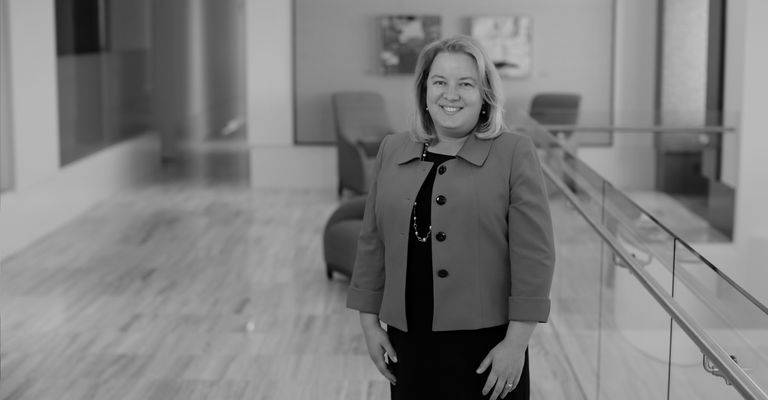Insights
TCPA landscape set to shift with Supreme Court's grant of certiorari to McLaughlin junk fax case
Dec 16, 2024Just a few months after the United States Supreme Court voted 6-3 to overturn the long-standing and widely applied legal precedent known as “Chevron deference,” it has agreed to hear a case that could entirely shift the landscape of the Telephone Consumer Protection Act (“TCPA”), which governs a variety of different types of electronically transmitted advertisements.[1]The TCPA is frequently litigated in the class action context due to its statutory damages provision, which allows a minimum of $500 and a maximum of $1,500 per violation.[2]The latest case on the Supreme Court’s docket, McLaughlin Chiropractic Associates, Inc. v. McKesson Corporation, could significantly increase the power of individual federal courts to disregard guidance from the Federal Communications Commission (“FCC”) related to the TCPA.
Prior to the Court’s abolition of Chevron deference in Loper Bright Enterprises et al. v. Raimondo, Secretary of Commerce, et al. (“Loper Bright”)[3]in June, the majority of courts to face the issue had held that two separate principles of federal law required them to defer to FCC guidance regarding the sweep and application of the TCPA: (1) so-called Chevron deference, the court-made doctrine that purportedly bound courts to defer to all federal agencies’ rulings relating to ambiguous statutory provisions, and (2) the federal Hobbs Act (also known as the Administrative Order Review Act), which grants Courts of Appeals exclusive jurisdiction to review final orders of the FCC (as well as rulemaking from certain specified other agencies).[4] Starting with Loper Bright, to be followed by McLaughlin, the Court could deliver a one-two punch and decimate the power of FCC rulings.
FCC rulings and the TCPA
Whether pro-plaintiff or pro-defendant, FCC rulings have provided guidance and a degree of certainty for TCPA litigants. For instance, a recent FCC ruling requires businesses to honor an opt-out request within ten business days, giving plaintiffs an avenue to recover when an opt-out request has not been honored during this narrow window.[5] On the other hand, in the 2019 decision In the Matter of Amerifactors Financial Group, LLC Petition for Expedited Declaratory Ruling, the FCC drastically limited the circumstances under which faxed communications were governed by the statute, ruling that online fax services were outside of its scope.[6]Subsequently, some defendants have defeated TCPA cases, both at the class certification stage and on summary judgment, by showing that faxes were sent to online services rather than traditional fax machines through technologies that are increasingly replacing old fax machines.[7] The Supreme Court’s recent decision calls into question how much this kind of guidance will be followed by courts going forward.
The Loper Bright decision
The “Chevron deference” doctrine was created in 1984 by the Supreme Court’s landmark ruling in the matter of Chevron v. Natural Resources Defense Council (“Chevron”).[8]The doctrine mandated that when Congress passed a law that left room for interpretation, courts had to defer to federal agencies to interpret ambiguous provisions.[9]In the 2024 Loper Bright decision, however, the Supreme Court overturned Chevron deference, holding that federal courts must not defer to such agency interpretations.[10]The decision represents a significant change, sending decision-making power concerning federal statutes back to the federal courts, rather than agencies. Post-Loper Bright, many wondered how the TCPA would be affected by the sudden void left by the destruction of Chevron deference. Common opinion was that Loper Bright would not have a huge impact on TCPA litigation because the Hobbs Act separately required district courts to defer to the FCC’s rulings.
The Hobbs Act
The Hobbs Act limits judicial review of FCC “final orders” to appellate courts; however, it has not yet been resolved whether a district court must accept the FCC’s legal interpretations of the TCPA. Nonetheless, the FCC’s rulings have historically been given tremendous deference under the Hobbs Act.
Hobbs Act deference was drawn into question back in 2019, when the Supreme Court heard PDR Network, LLC v. Carlton & Harris Chiropractic, a TCPA fax case turning on the question of whether a fax offering free services was an “unsolicited advertisement” prohibited by the TCPA, as the FCC had ruled.[11]The Supreme Court granted certiorari to consider “whether the Hobbs Act required the district court in this case to accept the FCC's legal interpretation of the Telephone Consumer Protection Act.”[12]However, the Court punted and sent the case back to the Fourth Circuit because the Court of Appeals had not considered whether the challenged FCC order was legislative or interpretive in nature, and whether the defendant had a prior opportunity to seek judicial review of the FCC Order.[13] Following the “non-decision” on PDR Network, TCPA litigants continued to see courts apply Hobbs Act deference, even post-Loper Bright. Enter McLaughlin.
McLaughlin's key question
In McLaughlin, the Ninth Circuit relied on the FCC’s Amerifactors decision to uphold the district court’s decertification of a class of fax recipients, holding that the Hobbs Act requires a district court to accept the FCC’s interpretation of the TCPA.[14]Plaintiffs petitioned for certiorari, arguing that there has long existed a circuit split concerning whether the Hobbs Act applies in private TCPA lawsuits, and whether it applies only to legislative orders, rather than interpretive orders.[15]They argued that the factors in PDR Network that prevented the Supreme Court from ruling on the Hobbs Act issue did not exist in their case.[16]
The Supreme Court’s granting of certiorari in McLaughlin will require it to answer the question that it declined to answer in PDR Network: “Whether the Hobbs Act required the district court in this case to accept the FCC’s legal interpretation of the Telephone Consumer Protection Act?”[17]McLaughlin will continue the clarification of administrative agencies’ roles in determining the meaning of laws that the Court began earlier this year with Loper Bright.
McLaughlin's potential impact
If the Supreme Court negates Hobbs Act deference in McLaughlin, courts will no longer be bound by FCC decisions. Whether this results in expansion or contraction of TCPA liability in the aggregate, the litigation will become less predictable. Some courts may continue to enforce the FCC’s rules, but others may not. The resulting uncertainty may lead to more TCPA litigation as consumers and businesses decide to test the waters with novel arguments. Forum shopping is also likely to become more prevalent, and settlement may be a more attractive option for litigants who want to avoid uncertainty. As the Supreme Court considers McLaughlin, it will be more important than ever for clients facing TCPA litigation to consult experienced counsel both in formulating novel arguments as to the weight to give prior FCC rulings, as well as to predict how courts will rule. Arguments in McLaughlin are scheduled for January 21, 2025.
[1] 47 U.S.C. § 227 et seq.
[2] 47 USC § 227(b)(3).
[3] Loper Bright Enterprises v. Raimondo, 144 S. Ct. 2244 (2024).
[4] 28 U.S.C. § 2342(1).
[5] In the Matter of Rules and Regulations Implementing the Telephone Consumer Protection Act of 1991, CG Docket No. 02-278, Report and Order and Further Notice of Proposed Rulemaking, FCC-CIRC2402-02 (January 25, 2024); see also Daniel Rockey and Martha Kohlstrand, New TCPA Opt-out Rules Coming as FCC Adopts Report and Order on Revocation of Consent, BCLP Insights (Feb. 16, 2024), https://www.bclplaw.com/en-US/events-insights-news/fcc-final-ruling-on-tcpa-opt-outs.html.
[6] In the Matter of Amerifactors Financial Group, LLC Petition for Expedited Declaratory Ruling, CG Docket No. 02-278, Declaratory Ruling, DA 19-1247 (Dec. 9, 2019).
[7] See Career Counseling, Inc. v. AmeriFactors Fin. Grp., LLC, 91 F.4th 202, 204 (4th Cir. 2024) (upholding denial of class certification based on individualized issues of whether faxes were received by an online fax service); Licari Fam. Chiropractic Inc. v. Eclinical Works, LLC, No. 8:16-CV-3461-MSS-JSS, 2021 WL 4506405 (M.D. Fla. Jan. 11, 2021) (defeating individual claims of named plaintiffs on summary judgment). BCLP attorneys represented the defendant in Licari and had earlier defeated class certification based on individualized issues of consent.
[8] Chevron, U.S.A., Inc. v. Nat. Res. Def. Council, Inc., 467 U.S. 837 (1984).
[9] Id. at 843–44.
[10] Loper Bright, 144 S. Ct. at 2263.
[11] 139 S.Ct. 2051 (2019).
[12] Id. at 2055.
[13] Id. at 2055-56.
[14] True Health Chiropractic, Inc. v. McKesson Corp., 2023 WL 7015279, at *2 (9th Cir. Oct. 25, 2023), cert. granted sub nom. McLaughlin Chiropractic Assoc. v. McKesson Corp., No. 23-1226, 2024 WL 4394119 (U.S. Oct. 4, 2024).
[15] Id. at *14-15.
[16] McLaughlin Chiropractic Associates, Inc. v. McKesson Corporation, Petition for Certiorari, 2024 WL 2325969, at *3 (U.S. May 17, 2024).
[17] Id., at *i (May 17, 2024).
Related Practice Areas
-
Data Privacy & Security
-
Data Privacy, Telecommunications & Collections





